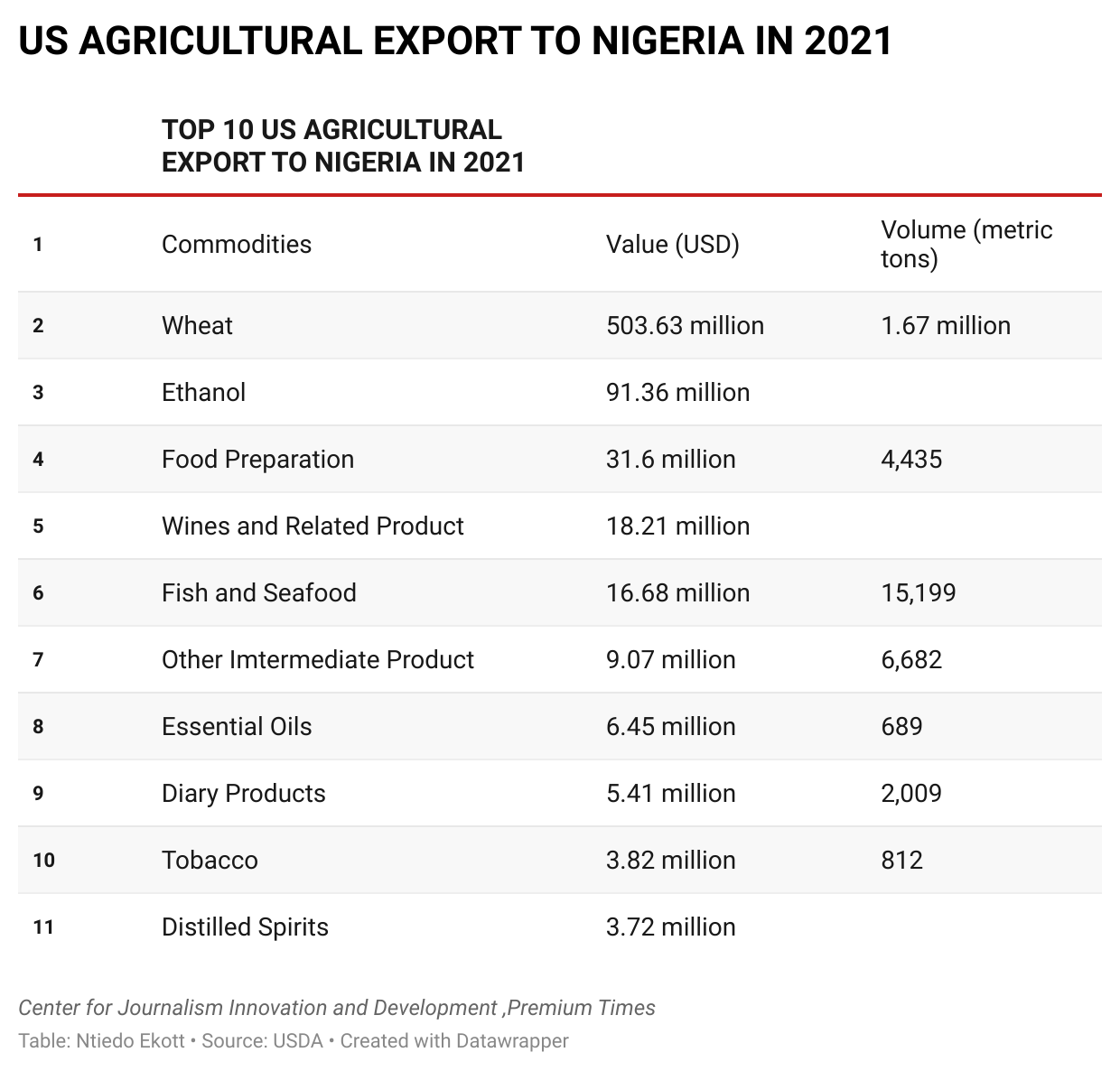Wheat and ethanol topped the list of agricultural items Nigeria imported from the United States of America in 2021.
This is according to data by the United State Department of Agriculture. The data shows wheat, alongside ethanol and food preparation topped the list with a total value of $626.59 million. Other items were wine and related products, fish and seafood, intermediate products, essential oils, dairy products, tobacco and distilled spirits.
According to the report, the value of the agricultural commodities exported by the U.S. to Nigeria rose 45 per cent between 2020 and 2021.
In 2020, Nigeria spent $487 million on U.S. agricultural products, less than $653.27 million recorded in 2019. The amount rose to $710.25 million in 2021.
Of that total, wheat alone gulped $503.63 million, representing the amount paid to import 1.6 million metric tonnes of the crop, the data showed.
Tobacco and distilled spirits, least on the list, cost Nigeria $3.82 million and $3.72 million respectively.
Despite its vast land, Nigeria relies heavily on imported food products for its large population as the country’s agricultural sector has underperformed for decades leaving stables such as rice and maize with huge shortfalls.
The Nigeria Bureau of Statistics said Nigeria spent N1.97 trillion on importation of food and agricultural products, making about 9.44 per cent of the country’s total import bill in 2021.
The bill is expected to rise in the coming months with vast fields submerged by current floods in most of Nigeria’s 36 states.
Nigeria imports more than 90 per cent of wheat, which is widely used in the country for pastries and confectioneries.
The president of the All Farmers Association of Nigeria, Kabir Ibrahim, said Nigeria imported 13,000 metric tons of wheat seeds in 2021 to boost local production.
“We have always imported wheat because we have a deficit, what we produce internally cannot meet our demand. We imported 13,000 metric tons of wheat seed from Mexico in 2021 to be able to meet our needs locally, so I believe this year, except for the global weather condition, we are hopeful we will be able to upscale the production of wheat locally,” Mr Ibrahim told PREMIUM TIMES.

Mr Ibrahim said low agricultural productivity in Nigeria is affected by many factors including inflation and the recent flood across the country.
“Our internal productivity is affected by insecurity and now flooding. Other factors include low mechanization and poor variety of seeds. Also, we are not highly innovative as we should be in agriculture and our policies are not properly implemented.
Whether it is wheat, ethanol, or whatsoever, all these things are affected by inflation and inflation is global. We can only escape part of inflation if we produce internally. Those things we don’t have any comparative advantage; we have to get them outside but as time goes on, we will overcome them,” Mr. Ibrahim added.





















